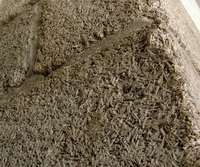While the government has targeted the eradication of all shack dwellings by 2014, Housing Minister Lindiwe Sisulu said there was a danger that her ministry’s demands for both cash and infrastructure “could be completely wiped off the radar screen”.
Sisulu said there was a “clear and present urgency” to secure the finance, raw materials and land needed to re-house the 2,4-million families currently living in informal settlements before the competition for resources becomes even more intense.
“This [low-cost housing for the poor] is a constitutional requirement of this government, so we want to make sure that … in the next two years we can have a massive injection in housing,” she said.
The minister said housing delivery would have to double from the current 250 000 units a year to achieve the goal of eradicating shantytowns by 2014.
A shortage of cement was only one of the obstacles, with retailers more willing to sell to private companies than the government, Sisulu said.
South Africa, with unemployment estimated as high as 40% and millions living in poverty, has budgeted R15-billion to host the first World Cup on the African continent. — AFP
Scroll down the page to find a sustianable eco-alternative to cement - why yes ITS THE CANNABRICK. 1 5th the price - readily available. Carbon trap. Green-building





